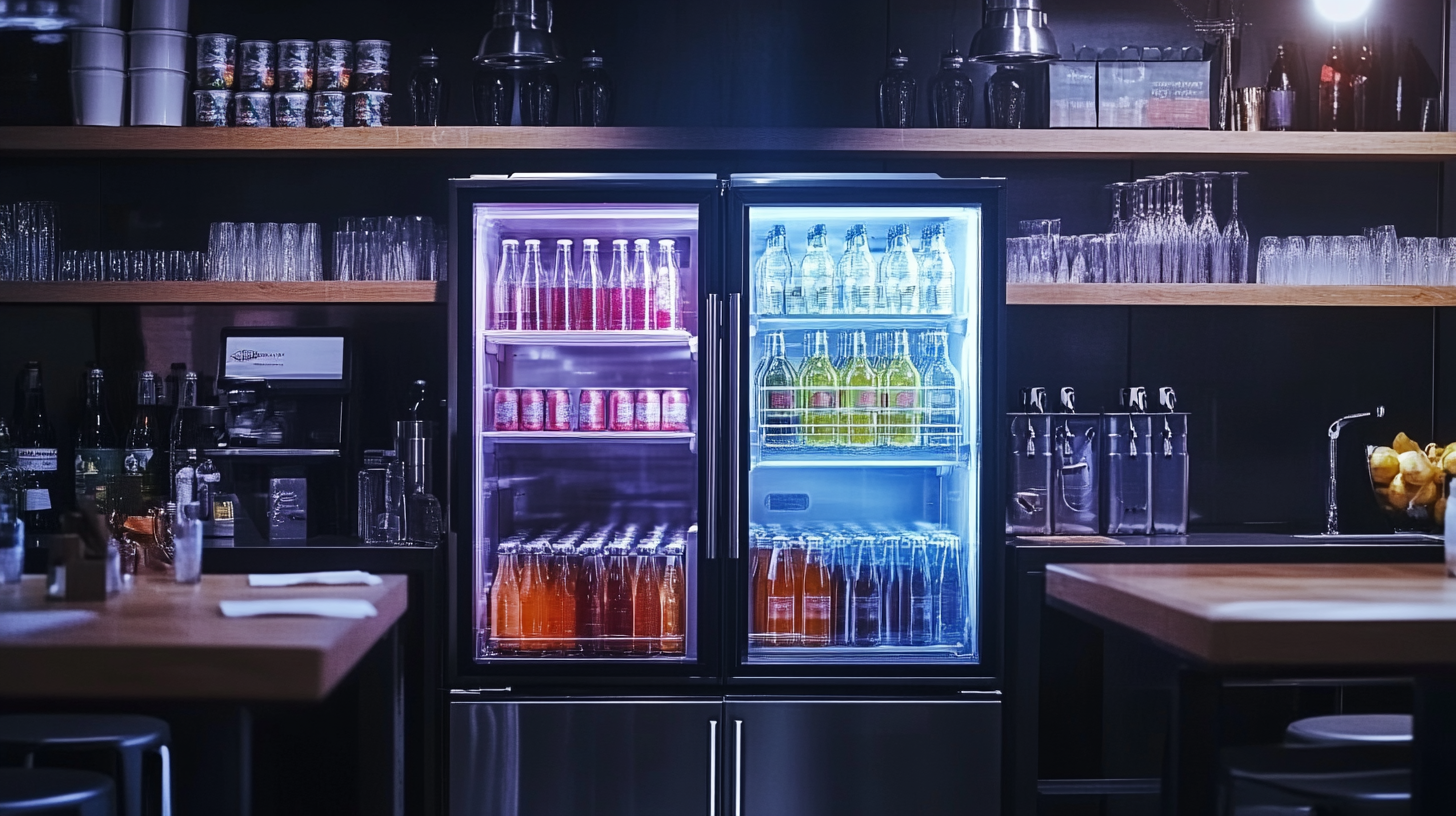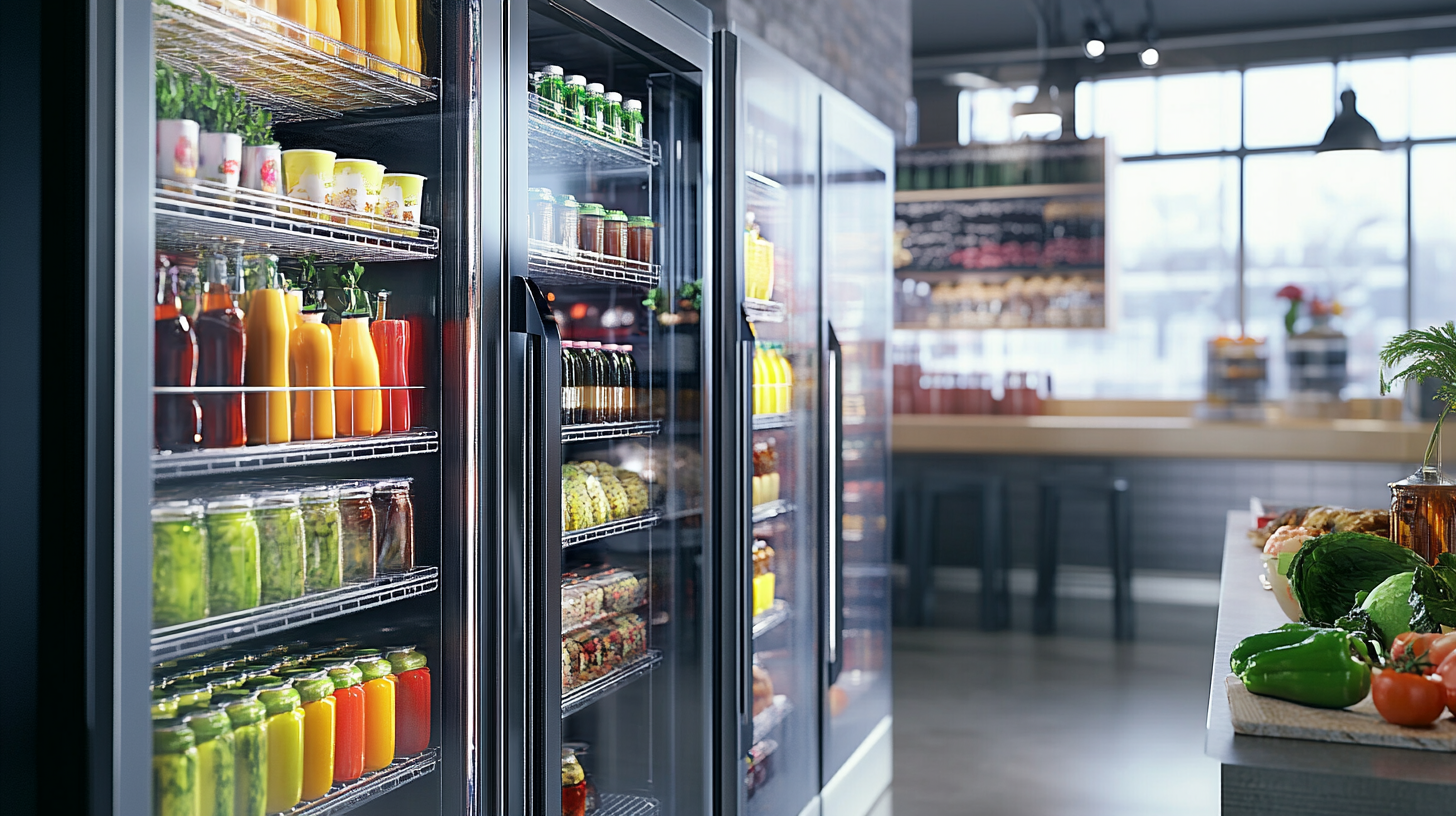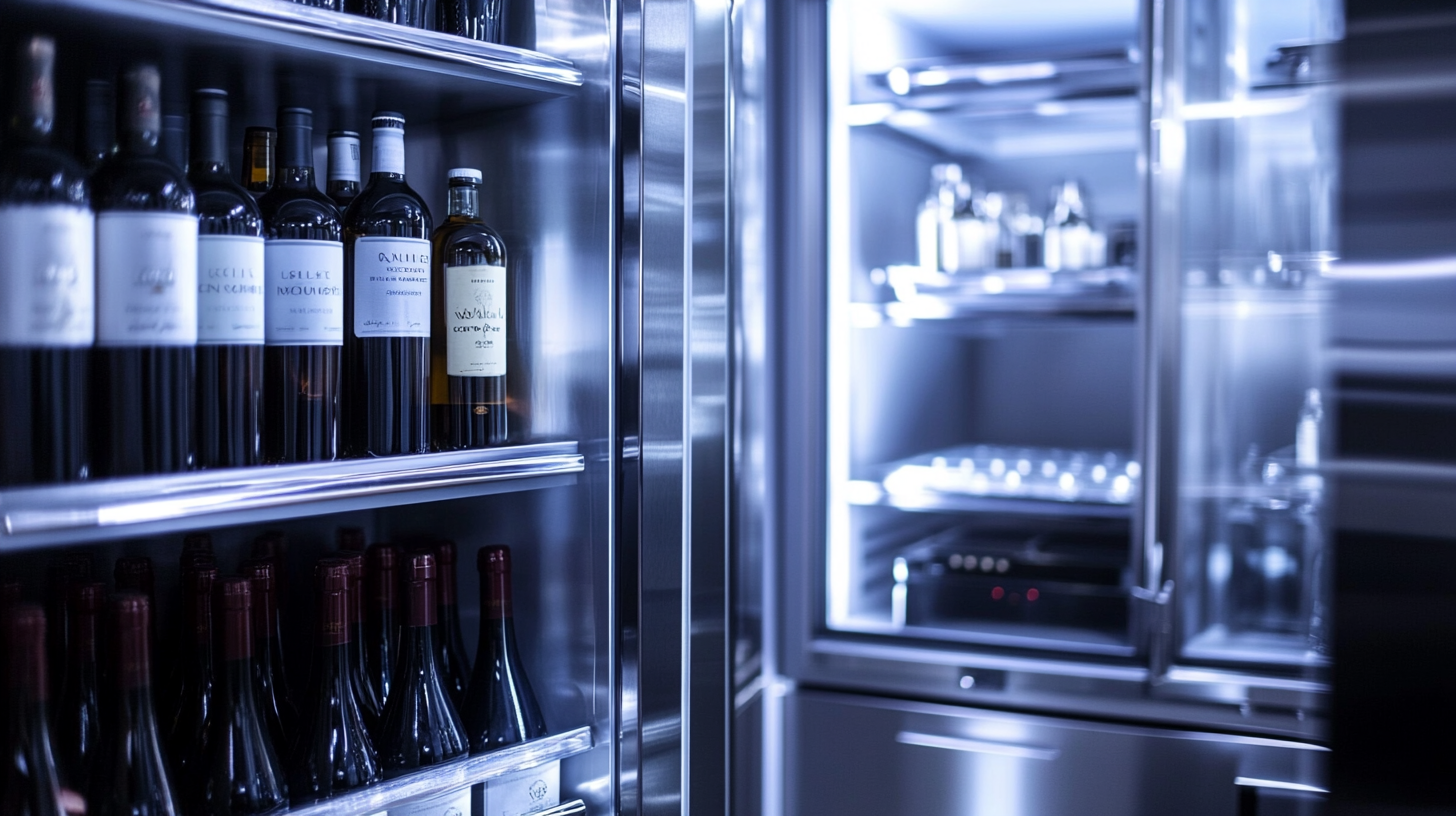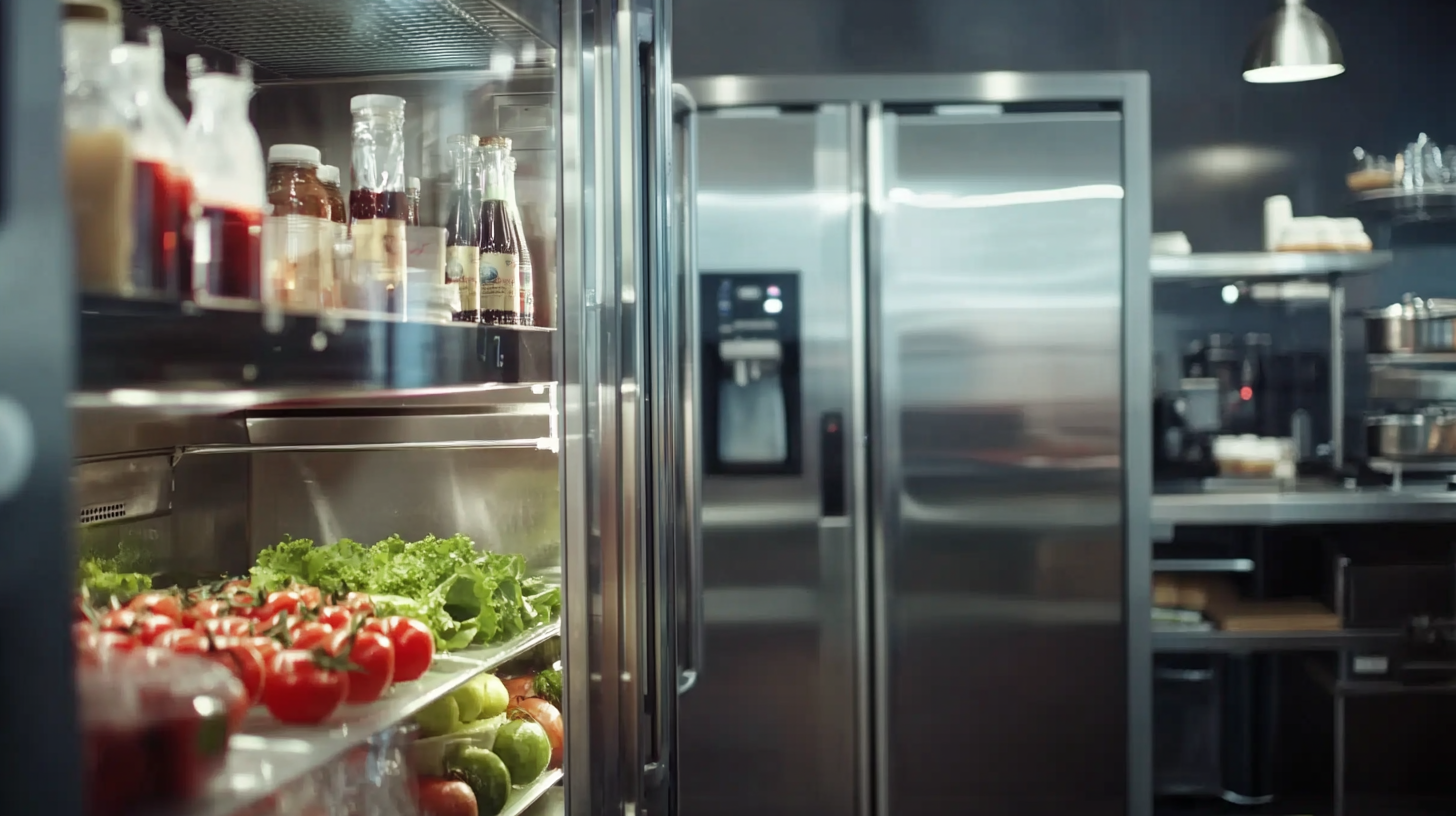So we can accentuate the importance of efficient storage mode in such a rapidly progressing F&B (food & beverage) industry. Here, the commercially rated refrigerator is tantamount, for not just the preservation of perishables but enhancing the operational efficiency and customer experience. Innovative ways of employing commercial refrigeration have developed as companies try to keep pace with modifications in consumer demand and technological advancements. These refrigerators are no longer only used for product chilling; they now position themselves at the very center of food servicer operations, from show casing to inventory control.
Stepping into the world of creative applications of Commercial Refrigerators leads us into the shift being undertaken in the food and beverage industry. These refrigeration appliances are creating new paths to sustainability and profit possibilities from energy-efficient configurations to multiple-use displays. By discussing the latest trends and progressive applications, we might be able to offer insight into how companies can use commercial refrigerators to not only satisfy health and safety requirements but also further strengthen their brand image and ensure customer satisfaction.

Modern design trends in commercial refrigerators can disrupt the food and beverage industry in efficiency and sustainability. Recently at the China Retail Conference, outstanding examples include innovations that combine technology with human experience as a lever for energy efficiency improvements. The improvements are increasingly essential in line with the industry's need to take a stand between performance and eco-friendliness. Such digital developments comprise smart monitoring systems and energy-efficient refrigerating systems and further points to the direction of the automation trend in retail environments. With increasing numbers of companies applying these innovative concepts to their refrigeration systems, the potential for lowering the operational costs as well as added benefits for enhancing food safety becomes very clear. It is the right setting for technology and design to build up a compelling future for commercial refrigeration.

Temperature control plays an important role in ensuring food safety and quality, especially in the food and beverage industry. With the increasing trend of frozen foods, commercial refrigerators have become very important in maintaining the integrity of products. These appliances prevent bacterial growth and spoilage by continuing the regulation of temperature allowing consumers to enjoy fresher experiences when it comes to food consumption.
Innovative commercial refrigeration is no longer limited to its usual applications. Advancements in technology enable detailed temperature monitoring and management, appealing to the demand for convenience and quality. Also, as consumers go gaga over trendy items and make such fresher products easy to consume, these refrigerators will possibly run the race against demand trends, such as gourmet frozen snacks and simple meal kit preparations. In fact, the improvement of temperature control has more proven benefits like life extension of the product while contributing largely to consumer satisfaction in a fast changing world of food.

Refrigeration is noticed to be a game-changer for the food and beverage industry at large. It would help in the more efficient storage and preservation of food products while also providing myriad options for the resolution of challenges experienced by the food and beverage industry. From AI-based temperature control to predictive maintenance, smart refrigerators ensure the highest efficiency and the utmost reliability, making it a necessity for any food business today.
Also in 2023, emerging trends are showing how technology plays an important role in addressing social and environmental issues within the segment of food production. Out there, challenges like sustainability and consumer demands are constant for the smart refrigerated systems to provide to the business a good ally. With intelligent features that monitor stock levels and minimize spoilage, companies are now able to shift their focus to ensuring quality products while streamlining their operational workflow. Thus, necessity and innovation meet, giving birth to a new era of competitive commercial refrigeration in the food and beverage industry.

Today, in the area of food and beverages, energy-efficient refrigeration is one of the most critical innovations according to the importance of the technology in enhancing sustainable practices. These new types of commercial refrigerators now optimize energy while effectively reducing carbon footprints in overall institutional proceedings. Using smart sensors and eco-friendly refrigerants implies that businesses will be able to adapt their cold storage technologies to the environmental goals.
The emerging trend shows a huge market for frozen food-fast emerging into households like that of Lisa, which today has provisions for very different foods in the freezer. Companies will therefore have to invest in new-age energy-efficient refrigeration systems. The system not just meets the consumer need for such commodities because of their convenience and quality, but it also goes beyond that: it lets companies achieve greater efficiency compared with their peers in lessening their ecological impact.
New-age cooling systems are finding heavy application in the food and beverage industry as it is a dynamic field. As illustrated by the latest case studies, the advanced commercial refrigerators maintain not only the quality of food but further a lot in operating efficiency. Large-impact refrigerators were, for instance, adopted in some countries, equipped with energy efficiency and cooling ability for both domestic and commercial purposes, thus optimizing ingredient supply whilst keeping energy costs minimal.
Furthermore, smart refrigerators have come to redefine inventory management. These refrigerators with AI analytics allow restaurants to monitor their stock levels while reducing waste by ensuring that perishables are used in time. The trend indicates how technology is fast becoming essential to adapting to modern challenges for the food industry, giving restaurants the creative cooling solutions they need for sustenance.
Temperature control is crucial for ensuring food safety and quality by preventing bacterial growth and spoilage, ultimately allowing consumers to enjoy fresher products.
Commercial refrigerators help maintain the integrity of food products by regulating temperatures consistently, which enhances product longevity and consumer satisfaction.
Recent advancements include the incorporation of smart sensors and precise temperature monitoring, enabling more efficient management of refrigeration to meet consumer demands.
The rising popularity of frozen foods and ready-to-eat items has necessitated the use of innovative refrigeration solutions to keep pace with market trends.
Energy-efficient refrigeration optimizes energy consumption and helps businesses reduce their carbon footprints, aligning cold storage practices with environmental sustainability goals.
Eco-friendly refrigerants are part of modern refrigeration solutions that contribute to sustainability efforts and reduce the ecological impact of refrigeration practices.
By adopting energy-efficient refrigeration systems, businesses can meet consumer demands while supporting sustainability, which helps them remain competitive.
The trend toward frozen foods is driven by consumer preferences for convenient and ready-to-eat meal options, prompting businesses to adapt their refrigeration solutions accordingly.
By maintaining the quality and safety of food products, effective temperature control directly contributes to a better consumer experience and satisfaction.
Sustainable practices in commercial refrigeration involve the use of energy-efficient technologies that align with environmental goals, benefiting both businesses and the planet.